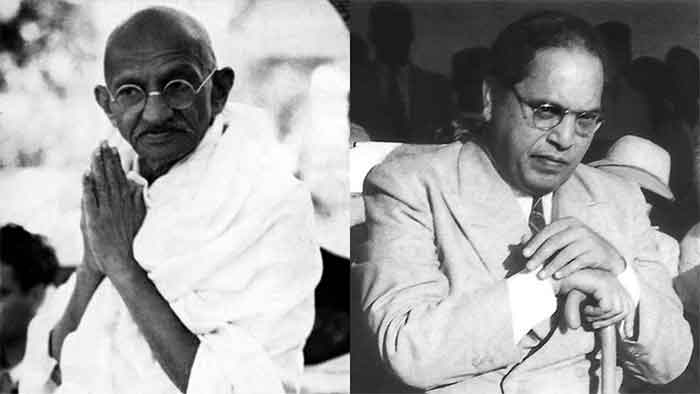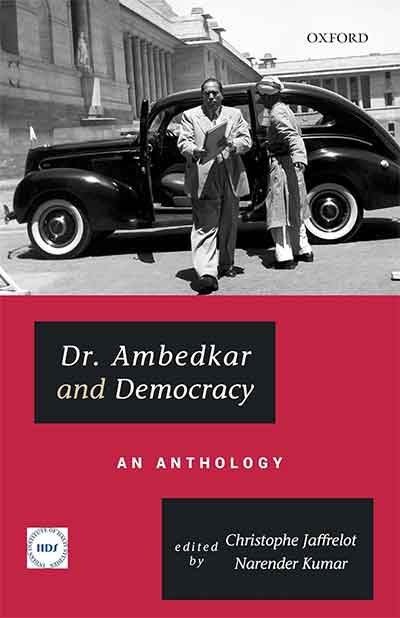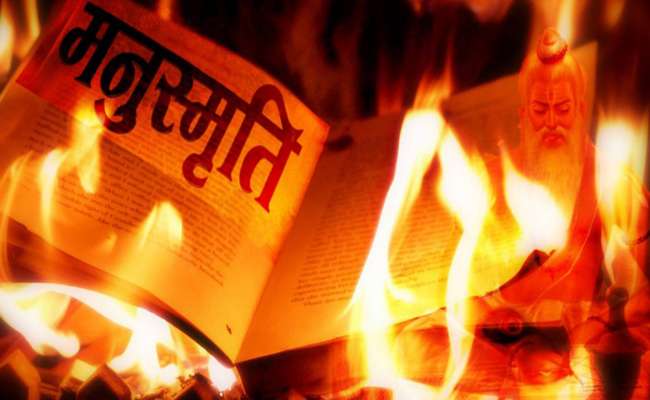
It is said that if we can learn from our mistakes and not let them rob us of our boldness or hope, then we can grow. It was perhaps this sought of boldness which emboldened Dr B R Ambedkar to vigorously pursue the cause of real political representation of the depressed classes after the Poona-Pact debacle.
On the 90th anniversary of the historic Poona Pact, let us analyze why Dr Ambedkar kept on openly condemning Poona Pact throughout his life and which alternative options he suggested in lieu of joint electorates forced upon by Gandhi and the Congress.
Coincidentally, this Poona Pact day also marks 40 years of publication of Saheb Kanshi Ram’s book “The Chamcha Age- An era of stooges”, perhaps the only one written by him.
Criticizing the historic wrong forced upon the depressed classes by Gandhi’s unholy fast at Yerwada jail; Babasaheb denounced it the very next day by his statement that “The untouchables were sad. They had every reason to be sad.” Indeed, he was the saddest out of them.
Babasaheb was quick enough to comprehend that theoretically the two-stage elections enacted by Poona pact would lead to pseudo-representation of the depressed classes. Within a couple of months of Poona Pact, he approached Gandhi with an alternative option of a single election where a winning depressed class candidate should receive a 25 percent votes from his own community. Gandhi rejected this proposal and Ambedkar’s theoretical fears were proved practically right in 1937 and 1946 elections. Subsequently, in a memorandum submitted to the Constituent assembly, he again reiterated his repeated stand that only separate electorates could ensure real representation of untouchables.
90 years of electoral evolution ensuing Poona-Pact, political representation of Dalits has gone to rack and ruin. It all started with treacherous murder of the Communal award by Gandhi and is still being pursued with equal vigour by the current fascist regime despite having a diametrically opposite ideology to that of Gandhi. Doesn’t that explicitly imply that the powers that be have been working on a common doctrine of preventing the Dalits of their true political representation?
In his book “The making of India’s electoral reforms”, Raja Sekhar Vundru concludes that – The various electoral methods tried out on dalits such as Poona-Pact based panel system of primary and secondary elections; double member constituencies and current single member constituencies have failed to represent the cause of untouchables and remedies of equality in the society.
Had there been a genuine political representation of the dalits, 84 MP’s sitting in Lok Sabha who have been elected on Scheduled Caste reserved seats would have done wonders for their community in particular and the nation as a whole.
Taking the recent Punjab assembly elections into account where every third voter is a dalit, a study was published by Rehnamol Raveendran. The study points out that of the 34 reserved constituencies, many have more than 45% dalit vote share- Banga (49.71%); Kartarpur (48.82%); Phillaur (46.85%). Even in general seats, 64 of the 83 seats are with high Dalit voters many having more than 40% like Nakodar (43.89%), Nawan Shahr (40.66%) and Lambi (40.50%). So high is the percentage of dalit voters in Punjab that 98 of the 117 constituencies, the winner is decided by their votes.
Riding a negative vote-wave of dalit voters against the previous Congress government, AAP garnered 29 out of 34 reserved seats in 2022 elections. The point of contention is that whether these 29 MLA’s of AAP who won on reserved seats represent their party or their category. Unsurprisingly, they have no choice but to stab their community and stick to the party. It is this party discipline, as mentioned by Babasaheb, which prevented them from raising their voices when reservation policy was not implemented in appointment of law officers in Punjab. They couldn’t even utter a word when their Advocate-General stated in court that the government didn’t felt the legal necessity of reservation because paramount consideration is being given to ‘efficiency’ of the law officers. It is unlikely that finance minister who is the senior most dalit MLA of Punjab, is even in a position to implement dalit welfare schemes like SC sub-plan without a green signal from party high command. If this is the state of affairs in a SC dominated state like Punjab what do we expect from the real minority states.
It puts a direct question mark on the electoral system. The current methodology of representation and reservation in political sphere has produced an epoch which Saheb Kanshi Ram had termed in 1982 as Chamcha yug- An era of stooges. 40 years ago, Kanshi Ram had confirmed the disease diagnosed by Dr. Ambedkar 90 years back. And the Dalits are still reeling under the burden of pseudo-representation. It is high time for them to find the way out.
The panacea doesn’t require anything avant-garde but rather going back to Babasaheb. Perhaps, the only way-out is to undo the wrongdoings done and do what Dr. Ambedkar tried to do before and after the Poona-pact. The method of political reservation by joint electorates needs an amputation surgery and its replacement with representation of dalits by separate electorates is need of the hour.
The therapy prescribed by Kanshi Ram in Chamcha yug is still relevant even today. It envisages end of era of the stooges by a bi-pronged strategy of short term social action and long term political solution. As far as the social action is concerned, dalits have been equally let down by both the ignorant Chamchas as well as the enlightened/Ambedkariite Chamchas. The former paid no heed to life, struggle, mission and message of Babsaheb thereby assuming that the usurper of their rights is their saviour. The latter (Ambedkariite-Chamchas) are proving more dangerous to the society. They shove society from Chamcha age- era of stooges to Lota age-Age of baseless Bahujans by interpreting Ambedkarism by what suits them rather than the real ideology. Vijay Mankar states that Chamcha age was created on 24 Sep. 1932 while Lota age was created by these enlightened chamchas after 6 Dec. 1956.
If Insanity is doing the same thing over and over and expecting different results, then it is a wild goose chase for dalits if they are expecting to taste political power by the current electoral system. Reservation of seats with joint electorates has to be done away with and replaced with separate electorates for dalits. This is the only long term political solution to end Chamcha age and elect true representatives.
Now, who would do it? Neither PM Modi is going to do it nor the British are going to come back to grant the Communal award again. Lok Sabha has a coterie of 131 reserved seats MP who are ‘dumb driven cattle’ as termed by Raja Sekhar Vundru and are serving their respective political parties. They are not expected to legislate for separate electorates. Ironically, they are gladly extending their own reservations decade after decade while being party to gradual squeezing of reservation in education and government sectors. As far as the British are concerned, it was not only Dr Ambedkar’s powerful presentation at the first two round table conferences but also his personal persuasion that led to the announcement of Communal award.
Are the dalits waiting for another Ambedkar to be born to alleviate their sufferings? If indeed Babasaheb is living in his writing and speeches then the dalits should follow suit and press for separate electorates which he did all his life.
History never looks like history when you are living through it. Poona pact was a mean deal and for the dalits. Poona-Pact is not just history for them as they are still struggling from its repercussions.
A decade to go for centenary of Poona-Pact there stands a duty to undo the wrong done on this black day in Dalit struggle movement. Ambedkariite intelligentsia has to make a road map to ensure true dalit representation by implementing Babasaheb’s ideas of either separate electorates or a joint electorate method of specific percentage of votes for a reserved seat.
Dr JasSimran Kehal
MBBS, MS (Ortho).
MA (Journalism & Mass communication).
MA- Ambedkar Thoughts (Pursuing).
Kehal Trauma Centre, Nangal Dam, Punjab.
https://www.facebook.com/jas.kehal/
















































